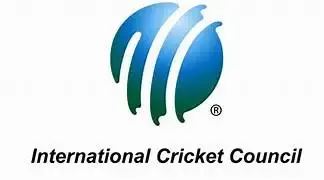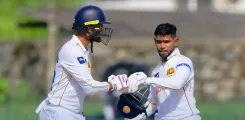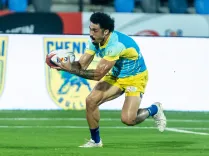What Are the New ICC Rule Changes for Tests and DRS Protocols?

Synopsis
Key Takeaways
- Stop clock rule introduced for Tests to address slow over rates.
- Updated DRS protocols enhance decision-making clarity.
- Umpires can choose whether to change the ball if saliva is used.
- Deliberate short runs will incur penalties and team decisions.
- Trial of full-time injury substitutes in first-class cricket.
New Delhi, June 26 (NationPress) The world of men’s international cricket is set to experience significant rule modifications from the International Cricket Council (ICC), which include a stop clock for Tests and revised Decision Review System (DRS) protocols. Though the 2025-27 World Test Championship (WTC) cycle has commenced with these new stipulations, changes for white-ball formats will come into effect starting July 2.
As reported by ESPNcricinfo, the ICC will implement the stop clock rule in Test cricket, addressing the concerns regarding slow over rates, a year after its initial introduction in men’s white-ball cricket. Under this regulation, the fielding team is required to commence the next over within one minute of the previous over’s conclusion.
Teams will receive two warnings for non-compliance, after which a five-run penalty will be imposed. These warnings reset after every 80 overs, with the timer running from 0 to 60, effective from the start of the 2025-27 WTC cycle.
Additionally, the ICC has revised the DRS protocol to clarify how secondary dismissals will be handled. For instance, if a batter is caught behind but replays indicate no bat contact, the TV umpire may review a possible lbw if the ball strikes the pad.
Previously, a second decision could overturn an “out” call; however, now the umpire’s original decision will remain during an LBW review. If the ball-tracking system yields an umpire’s call, the batter will be ruled out. This modification aligns the review process more closely with the on-field umpire’s initial ruling.
Other noteworthy changes include the ICC making it optional for umpires to change the ball if saliva is used, ensuring fairness in catches even on no-balls, and strategically penalizing batters for deliberate short runs.
The report indicates that if a batter deliberately short runs, umpires will ask the fielding team to choose which batter they want on strike, while the five-run penalty remains in effect.
Another significant rule introduced by the ICC is the trial of full-time injury substitutes in domestic first-class cricket matches. In the event of serious injuries (excluding muscular or hamstring injuries), the substitute must be a like-for-like replacement, in accordance with the existing concussion substitute protocol, with implementation left to the discretion of the nations.








